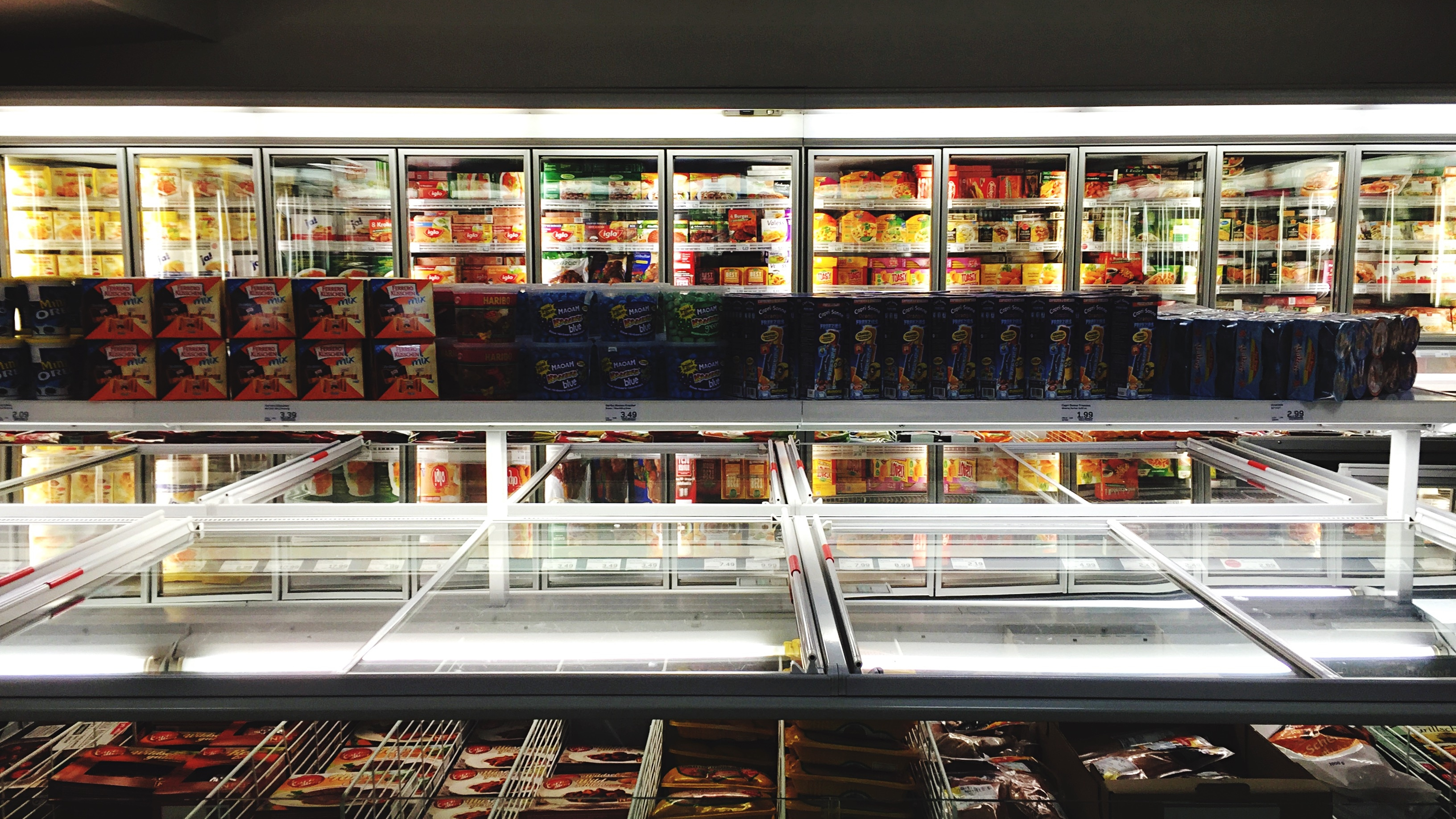The Frozen Food Industry Is Suffering Because We're Afraid Of Glass Doors
Consider the alarm bell rung: frozen food is in trouble. A report from NPR notes that, while the broccoli cuts/Lean Cuisine/Eggo/fish stick industry tops tops $50 billion annually, it amounts for only six percent of the grocery business, a number that has dropped or stayed flat each year for the last few years. You could be forgiven for assuming that means we're eating healthier, but analysts say it's not so simple. There are many causes, and one of them seems to be that we just hate those stupid glass doors.
NPR spoke with analyst Phil Lempert, the supermarket guru of SupermarketGuru.com, who put it this way:
"You are physically cold," he said of the disadvantages of shopping for frozen food. Plus, he adds, much of the problem comes down to design, including the packaging — a predictable blur of black Lean Cuisine, green Healthy Choice and red Stouffer's entrees. Then there's the literal wall between shoppers and food.
"That glass door," Lempert says. "It really creates a fence."
That may seem silly, but the success of Trader Joe's would seem to back that up. NPR's report notes that while the purveyors of peanut butter-filled chocolate covered pretzels and Two Buck Chuck don't release sales numbers, a PR representative of the company told them in an email that "sales of our frozen products are doing great." NPR attributes this to "coffin cases," the morbidly-named freezers in which you can poke around for grilled cauliflower nuggets and two-a-box chickpea patties.
Of course, it's not just those terrifying glass panes keeping us away from frozen vegetable medleys and Banquet salisbury steaks. As sales of frozen foods are on the decline in grocery stores, deli sections seem to be thriving. This suggests that while we may want our food "fresh," we prefer it to be fresh-ly made by someone else, preferably with lots of mayo.
